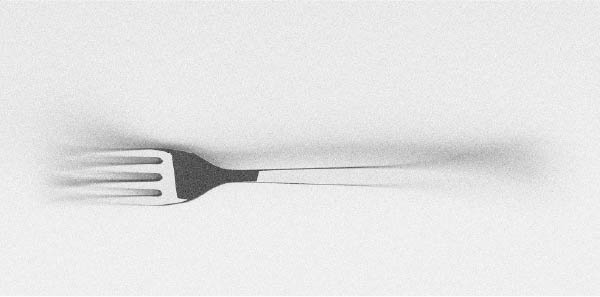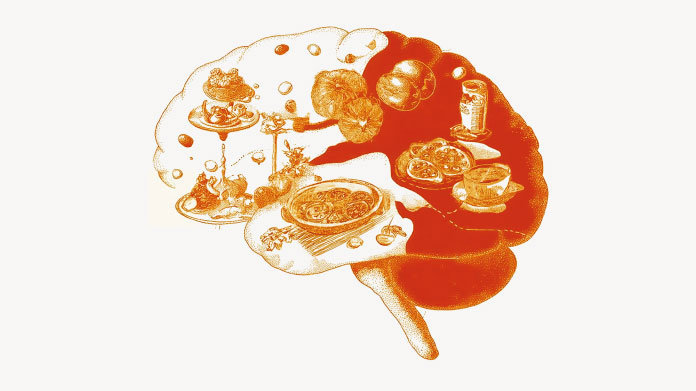Weight Management - 7 Key Facts on Satiety
What is the sensation of satiety? How can it help manage weight? How do we recognize it? To answer these questions and more, we have compiled a summary of 7 key facts on satiety.

Satiety is Defined as The Absence of Hunger
The definition of satiety is closely linked to that of hunger. Distinct from appetite, which corresponds to the desire to eat, the feeling of hunger signals a physiological need. The body alerts of a lack of energy, and it is only once this need is satisfied that the sensation of satiety is registered. In other words, the feeling of satiety follows that of hunger and tells us that we have eaten enough.
Satiety Should Not Be Ignored When Trying to Lose Weight
In signaling that we have consumed enough food, the feeling of satiety prevents from over-eating and gaining weight. Additionally, it may be possible to encourage weight loss by stimulating and prolonging this feeling of satiety with the aid of certain dietary supplements such as Weight Loss Booster or Advanced Fat Burner.
Satiety Can Be Synonymous With Satisfaction
The feeling of satiety could be compared with a signaling of satisfaction. However, it should not be confused with other signals, especially that of fullness, which may occur some time after the sensation of satiety. Having a full or bloated stomach can be a sign of having over-eaten or digestive challenges.
Listen to Your Body to Recognize the Feeling of Satiety
As you could imagine, recognizing the sensation of satiety may not be as easy as it might seem. 'Listen to your body' is often the advice given by nutritionists and dietitians who appear to recommend, when possible, sitting down to eat at a table in a calm setting, these being the ideal conditions in which to focus on the signals your body sends.
Registering the Feeling of Satiety May Take Time
A calm environment is not the only important factor in learning how to recognize satiety. It might require patience as the brain may need to transmit the satisfaction signal. Specialists generally seem to advise that it could take at least 20 minutes after starting a meal before the satiety signal is registered. Hence, it is important to take your time over food.
The Pace of Modern Life Can Affect the Sensation of Satiety
If calm is conducive to recognizing satiety, everyday life challenges can complicate it. They may tend to increase the urge to eat compulsively, which could reduce the chances of perceiving the sensation of satiety. This is why dietitians and nutritionists might also recommend using mealtimes as an opportunity to reflect, be calm, and enjoy the moment.
Diet Could Affect the Sensation of Satiety
Certain foods may be more satisfying than others, inducing satiety more rapidly. They include, for instance, sources of dietary fiber such as apples, oat bran, and almonds. Others, such as carob gum and Hoodia gordonii powder, may have a natural appetite-curbing effect. They could be used to help with cravings and desire to snack.
Keywords
2 Days
great products and prices
great products and prices
Marie
7 Days
Easy to navigate site
Easy to navigate site, had what I was searching for, good price. easy order-check out
James Tucker
13 Days
My skin is clearing up nicely!
Pretty good for my skin so far.
Christian
16 Days
The new packaging is excellent
The new packaging is excellent - finally! No more squashed boxes and torn envelopes.
GORAN
17 Days
Great Product
Great Product
Larry Garrett
21 Days
Quick shipping
Quick shipping; good price. No issues!
Mary McCarty
22 Days
Thr product is very good and is helping…
Thr product is very good and is helping me on my health. Then is always on time
LUGO Luz
25 Days
Buying was fine
Buying was fine. I had problems with the website not recognizing my login info, and had to call to get it fixed. Other than that, everything was good.
David S. Clark
25 Days
Your super maca and super ginseng are…phenomenal
Your super maca and super ginseng are phenomenal supplements that compliment each other when taking them together. Fantastic feeling of well-being and lots of mid day energy without the crash.
Keith Mason
28 Days
I have had amazing results with every…
I have had amazing results with every supplement I've purchased. I am extremely satisfied with this company
kirstin Torres
28 Days
Fine products
Fine products . They are on the leading edge of online supplements. The only issue -so far-is they sometime run out of subscription items.
Jason Argos
31 Days
The ordering process is very user…
The ordering process is very user friendly and the products always come in a timely manner.
CARTER Rhonda
32 Days
The price for Dr
The price for Dr. Pero's AC-11 is reasonable and in line with his views. (my former colleague). Keep it pure.
CAMPBELL Clayton
34 Days
Right on every time.
Right on every time.
Arthur Nicholas
37 Days
They are cheaper than everyone else and…
They are cheaper than everyone else and the shipping was fast. Great company.
Patricia Adams




